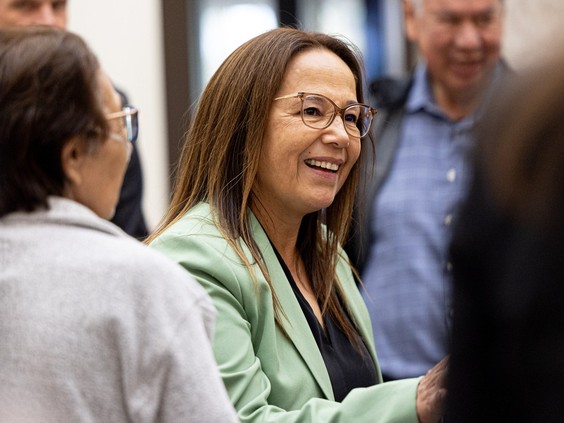
by Angela Amato
Regina Leader-Post
Indigenous communities across Saskatchewan are rejoicing after the Supreme Court of Canada upheld the 2019 Indigenous Child Welfare Law, also known as Bill C-92.
The Government of Quebec submitted an appeal in September 2021 claiming the law is unconstitutional and it oversteps provincial jurisdiction, which typically regulates child and family services. During a hearing in February 2022, the Quebec Court of Appeal ruled that the law is constitutional, but said sections that give Indigenous communities’ laws power over provincial laws, infringe on Quebec’s rights.
On Friday, the Supreme Court of Canada ruled against these claims, with Minister of Indigenous Services Patty Hajdu and Minister of Crown-Indigenous Relations Gary Anandasangaree noting the decision affirms Indigenous communities have the inherent right to lead their own child and family services.
“For far too long, our community has experienced the detrimental impacts of policies that have fragmented our families and attempted to erase our cultural identity. Generations of our people have suffered under government actions that dismantled our families and threatened our way of life,” said Lac La Ronge Indian Band Chief Tammy Cook-Searson in a statement Monday. “This landmark decision challenges this dark past and offers a path forward for our people to heal and govern ourselves according to our own laws.”
Although Lac La Ronge Indian Band doesn’t have its own act in place just yet, the Nation says that when it does, its laws regarding child and family services legislation will stand on equal footing with federal law, and will override provincial law, offering a level of protection and autonomy previously unseen.
“This is not just a legal win,” said Cook-Searson. “We see this decision as a catalyst for change, where the rights and welfare of our children will be actively protected by our own laws. Moving forward, we will be able to look after our children in ways that reflect our deeply rooted values and tradition, and ensure that they grow up with a strong sense of identity, belonging and pride.”
Cook-Searson added that the law stands in stark contrast to the era of residential schools, the Sixties Scoop and provincial child welfare policies that were aimed to assimilate Indigenous children throughout Canada.
The Indigenous Child Welfare Law became an Act of Parliament on June 21, 2019. The bill’s purpose is to recognize First Nations, Inuit and Métis jurisdiction over child and family services, as part of an inherent Indigenous right to self-governance in response to the Truth and Reconciliation Commission’s Call to Action #4.
In a statement, the Supreme Court of Canada said that the pith and substance of the act is to protect the well-being of Indigenous children, youth and families by promoting the delivery of culturally appropriate child and family services and, in so doing, to advance the process of reconciliation with Indigenous peoples.
“This ruling reaffirms the sovereignty of our Nation’s Acts and Legislations that supersede Canadian laws over the rights of our children,” said Cowessess First Nation Chief Erica Beaudin in a statement. “The miyo-pimatisiwin Act, and our own Constitution Act reaffirm what we as a Nation have always held true: Cowessess First Nation is a sovereign nation with the ability to create, implement and enforce our own acts, legislations and structures according to our inherent Treaty Rights.”
The miyo-pimatisiwin Act was established in April 2021, asserting jurisdiction over Cowessess First Nations children in care on and off reserve. Cowessess was the first First Nation to develop and implement its own act governing the rights of the child, building upon Bill C-92.
Beaudin also commended Gitxsan child welfare activist Cindy Blackstock and her team for paving the way for legislation benefitting Indigenous children and families.
“Just as families across the country have the right to raise their children in culturally appropriate surroundings, so too do Canada’s Métis, First Nations and Inuit peoples,” said Métis Nation Saskatchewan’s Vice President and Minister of Justice Michelle LeClair in a statement Friday. LeClair commended the nation’s highest court for its “thoughtful and meaningful deliberation” and welcomed the landmark victory.
Hajdu and Anandasangaree also commended the victory.
“Today’s opinion upholds a groundbreaking law in this country that affirms the right of Indigenous communities to care for their children and keep them connected to their culture, something families have waited a long time for,” said a statement following the decision. AnAmato@Postmedia.com

